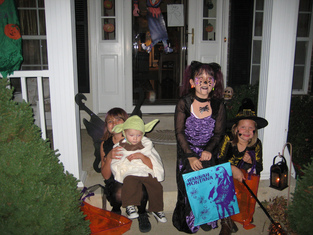 November, 2013 How often do we find ourselves at a loss when our favorite machine breaks down? What would you do, for example, if you lost the use of your washing machine, fridge, computer or mobile? Could you function competently and confidently without it? If your autopilot failed, could you land the plane? Many of us find, and airline pilots have proven this, we either react slowly or not at all in such situations. Panic quickly sets in. Why? Because we’ve forfeited our skills and knowledge to machines for so long that we’ve forgotten how to act on our own. With the breakdown of a gadget we rely on daily, the world can become a scary, open frontier with nothing but unknowns because we’ve forgotten how to live knowledgeably and creatively in the world. This lack of an experiential, personal knowledge of our world threatens the very quality of our lives. I urge you to read a fascinating article from The Atlantic: “All Can Be Lost: The Risk of Putting Our Knowledge in the Hands Machines.” The last paragraph is a huge pay off after the rest of the article. (link below) Much of the article echoes my previous posts on this blog entitled “How Smart Is Smart.” If you don’t like trailers, skip this paragraph and read the article. In essence, the author shows how we are losing skills and real knowledge by our over-reliance on automation. He cites examples from aviation, operating rooms, Inuit culture and elsewhere to show what happens when automation (computers, smart phones, GPS, etc) fails us because we lack skills and firsthand knowledge of a task. Our preoccupation with speed, efficiency and end results has supplanted the process, where real learning and skill development take place. We have become passive observers in the world rather than engaged participants in it and have given over life and work to technology. But isn’t this critique of automation all a little high-minded? Why am I so intent on pushing this button? Because I think it has spiritual significance. It has everything to do with my Christian faith and what it means for me to live as a Christian. Contrary to critics like David Suzuki who believe our environmental problems and our over dependence on the machine stem from the dominance of Christian thought in the West, I believe there is nothing more foreign to a Christian world and life view than a failure to engage ourselves wholeheartedly in the world with care, respect, and enthusiasm. God created and sustains the world and ultimately became a part of it himself. This is a great statement of love, and it means his creation is to be honored, celebrated, and intelligently, wisely cared for, with gratitude to its Giver. Is it possible that we are in danger of slipping further and further into a malaise, feeling insignificant? Are we becoming zombies, searching for real life substance? It’s no surprise to me that before the proliferation of drug remedies for depression, people for generations understood that work, hands on activity, and interaction with others was good therapy for depression. I’m thankful for how drugs have helped people get through difficult times and illness. But in our love affair with the quick fix of drugs, I wonder if we’ve lost the value of hands on engagement with life as depression therapy. I went through bouts of depression in my 20’s. The drugs they gave me didn’t seem to help much. I found the best therapy was activities like raking leaves, whittling, running, cleaning, oil painting, molding clay, and flesh and blood interaction. Giving something away to someone in need, or spending time with people who understood and loved me did more than the drugs did. None of these activities were interfered with by machines. All of them required me getting my hands dirty, and it got my synapses snapping. Somehow I felt my blood flowing normally again. A little physical exertion in the earthly elements and time with real people helped put me together, mend me, and make me whole again. I was feeling reconnected to myself and to my world. I keep coming back to the image in Genesis where God creates man: he’s on his knees in the mud, sweating, as he shapes and reshapes with clay the first human being. We find our image and meaning in our Creator, and in him we find the model of how we too are to live in the world. No one can deny the advantages – the comfort and ease – machines have brought us. Their exotic marvels are addictive. My daughter, when entering her school, insists on pushing the automatic door button for wheelchairs in spite of my efforts to get her to use her own door opening skills. We so easily succumb to things with shiny buttons. But I often wonder how much our machines have actually improved our quality of life. I’m not advocating a retreat to cave days. Only that we consider the cost of having machines and that we find ways to include in our day what we’ve lost to machines. From a Christian perspective, it’s impossible for me to simply stand back and forfeit every aspect of my day, including its potentially most rewarding activities, to machines. God created us to be engaged in his world as learners and doers, to get our hands dirty, just as he is engaged in it himself. This gives him great pleasure. http://www.theatlantic.com/magazine/archive/2013/11/the-great-forgetting/309516/
3 Comments
 November, 2013 Halloween used to be my favorite holiday, second only to Christmas. As with most kids, it was on my radar many weeks in advance. And it was in my favorite season, fall, in the same month as my birthday. After I had finally finished with smashing pumpkins and soaping windows (sometime during high school), and after I had quit trick or treating (sometime in college), Halloween became just a lot of noise, costumes, begging kids, and make believe terror. The celebration of gore and death, the non-stop train of uninvited guests to the door with parents who couldn’t care less who you were or give you the time of day, and kids learning how to destroy their diet and teeth in one night—it all sent me crawling to a dark corner of the house with the doors locked. Now that I have two young girls who have had a taste of Halloween that they’ll never forget, it’s all come full circle and I’ve been forced to take part again. Last week their mom took them out trick or treating while l assumed the role of hander-outer. I lit the candles on the front porch and put on a CD with creepy Halloween sounds that kids love to be terrorized by. It’s always a rough go. We’re in a busy kid-friendly neighborhood, and constant interruptions of a hockey game don’t sit well with me. I thought about simply putting the basket of sweets out on the porch with a sign that read, “Take ONLY ONE or you’ll be grabbed by a witch and ground into soup before you make it down the last step.” Then I thought, why not let them go ahead and take two, three, as many as they want? When Diane comes home with the kids, I'll tell her so many kids swarmed us all the candy went in a few minutes, so I had to shut it down early, nothing like it in years. But lying seemed too sleazy as a way out. I took a Crunchy, turned up the volume on the horror CD, and turned off the lights, hoping that would hold back the tide of visitors a bit, but it only encouraged them. My youngest, just turned three, had to bail early and came home a little disillusioned. Good, a fellow dissenter, I thought, who shares my beliefs. She continued to watch from “behind the scenes” in fascination, now from the perspective of the hander out, following my every move, running with eagerness each time the door bell rang, until she started grabbing the candy and handing it out herself. I stood back and saw my little girl transformed. A huge grin covered her face as she looked up wide eyed into the faces of witches, cats, bats, skeletons, and Sponge Bob’s. It seemed that being the treater was more satisfying than being the treatee. The visitors also seemed more appreciative to be getting treats from one of their own, and their “thank you’s” were more genuine. She even gave a candy to one little fairy’s father, who like me was momentarily caught speechless. Then it dawned on me. My three-year-old was teaching me how to give. A pleasure so easily bestowed, a transaction so wonderfully simple—one hand reaching out, the other letting go. I tried – taking my time, smiling, and looking into their eyes. To my surprise, I started to feel happier, more human you might say, like Scrooge coming to life. I don’t really get into the religious debates popular among some: whether it’s the eve of All Saints Day commemorating the holiest of the holy gone before us, or if you wish, a pagan holiday expressing the early Celts’ fear of and warding off of spirits, or a mix of the two. A paltry few people care about this anyway. For most, Halloween has no more meaning than a traveling costume party with a strange but fun-filled ritual of hand-outs. And I don't think I’ve ever noticed any more spirits on Halloween than on any other night. I realize Christians have gone out of their way to reclaim this day from the devil, handing out candy wrapped in tracts, for example, or holding private Christian parties, witnessing at the door (which I imagine would scare kids off faster than skeletons would), trying to get to know their neighbors at the door (utterly futile), and handing out hot drinks on the street. Bless them all. But this year, I was the one needing conversion. I needed a Halloween in its most uncomplicated terms, the way only a three-year-old can celebrate it: by giving and receiving, one person to another, monsters and goblins all, letting go like a child, and getting a little giddy about it. |
Archives
January 2024
Categories |
 RSS Feed
RSS Feed